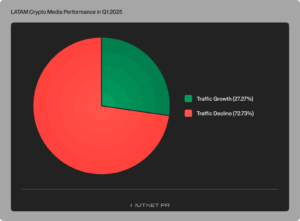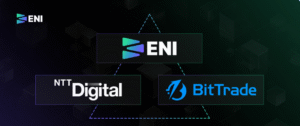
Open-source software development has been gaining traction over the past few decades. It refers to the process of creating and sharing software code that is free and accessible to the public. The primary goal of open-source development is to encourage collaboration and innovation by allowing anyone to use, modify, and distribute the code. Ethereum, a blockchain-based platform, has been instrumental in promoting open-source development. In this article, we will explore the role of Ethereum in promoting open-source software development.
Introduction to Ethereum and Open-Source Development
Ethereum is a decentralized platform that enables the creation of decentralized applications (DApps) and smart contracts. It was created by Vitalik Buterin in 2014 and has since become one of the most widely used blockchain platforms in the world. Ethereum’s success can be attributed to its ability to enable developers to create DApps using smart contracts, which are self-executing contracts with the terms of the agreement between buyer and seller being directly written into lines of code.
Open-source development, on the other hand, involves making software code available to the public, allowing anyone to use, modify, and distribute it. Open-source development has gained popularity due to the many benefits it offers, including increased collaboration and innovation, faster development cycles, and reduced costs.
The Role of Ethereum in Promoting Open-Source Development
Ethereum has played a significant role in promoting open-source development by providing developers with a platform to create and deploy decentralized applications. Ethereum’s smart contracts provide a secure and transparent way of executing code, making it ideal for creating open-source software.
One of the main ways in which Ethereum has promoted open-source development is through its use of Solidity, a programming language specifically designed for smart contracts. Solidity makes it easy for developers to create and deploy DApps on the Ethereum network, which can then be accessed and used by anyone with an internet connection.
Ethereum has also made it easy for developers to monetize their open-source software through the use of tokens. Tokens are digital assets that can be used to represent a variety of things, including shares in a company, loyalty points, or even physical assets such as gold or real estate. By creating tokens, developers can monetize their open-source software and earn revenue from its use.
Benefits of Ethereum for Open-Source Development
The use of Ethereum for open-source development has numerous benefits, including:
Increased Collaboration
Ethereum enables developers to collaborate on the creation of DApps and other open-source software. This collaboration can lead to faster development cycles and more innovative solutions.
Reduced Costs
By using Ethereum, developers can reduce the costs associated with traditional software development. This is because Ethereum provides a platform that is secure and transparent, eliminating the need for intermediaries such as lawyers or banks.
Greater Transparency
Ethereum’s blockchain technology provides a transparent way of executing code, making it ideal for open-source development. This transparency ensures that all transactions are recorded on the blockchain, making it easy to track and verify them.
Decentralization
Ethereum’s decentralized nature ensures that no single entity has control over the platform. This decentralization makes it ideal for open-source development, as it enables developers to create and deploy software without the need for central authorities.
Smart Contracts and Open-Source Development
Smart contracts are self-executing contracts with the terms of the agreement between buyer and seller being directly written into lines of code. They are one of the key features of Ethereum and have played a significant role in promoting open-source development.
Smart contracts provide a secure and transparent way of executing code, making it ideal for creating open-source software. The use of smart contracts in open-source development ensures that all transactions are recorded on the blockchain, making it easy to track and verify them. This transparency is essential for building trust between developers and users of open-source software.
Tokenization and Monetization
Tokenization is the process of creating tokens, digital assets that can be used to represent a variety of things, including shares in a company, loyalty points, or even physical assets such as gold or real estate. Ethereum has made it easy for developers to create and distribute tokens, which has enabled them to monetize their open-source software.
By creating tokens, developers can generate revenue from the use of their open-source software. Tokens can be used to represent anything of value, including access to premium features, voting rights, or even ownership of a portion of the software. The use of tokens has opened up new revenue streams for open-source developers and has made it easier for them to sustain their projects over the long term.
Decentralized Autonomous Organizations (DAOs)
Decentralized Autonomous Organizations (DAOs) are organizations that are run entirely on the blockchain, with no centralized control. They are a relatively new concept, but they have already had a significant impact on open-source development.
DAOs enable developers to create decentralized organizations that are transparent, secure, and self-governing. This makes them ideal for open-source development, as they provide a way for developers to collaborate on projects without the need for centralized control.
Challenges Facing Open-Source Development
While open-source development has many benefits, it also faces some challenges. One of the main challenges is the lack of financial incentives for developers. Open-source developers often work on projects without pay, relying on donations or other forms of community support to sustain their work.
Another challenge facing open-source development is the risk of forking. Forking occurs when a group of developers takes a project in a different direction, creating a new version of the software. While forking can be beneficial in some cases, it can also lead to fragmentation and a lack of collaboration.
Conclusion
Ethereum has played a significant role in promoting open-source software development. Its use of smart contracts, Solidity, and tokens has made it easy for developers to create and monetize their open-source software. The benefits of using Ethereum for open-source development include increased collaboration, reduced costs, greater transparency, and decentralization.
I’m a highly experienced and respected author in the field of Cryptocurrencies. I have written numerous articles and books on the subject, and my work is highly regarded by my peers. I have a strong understanding of the technology behind cryptocurrencies, and I am always up-to-date with the latest developments in the space. I am also an active investor in cryptocurrencies, and I have made a significant profit from investing in this new asset class. In addition to my writing and investment activities, I am also an active member of the cryptocurrency community, and I frequently speak at industry events.










